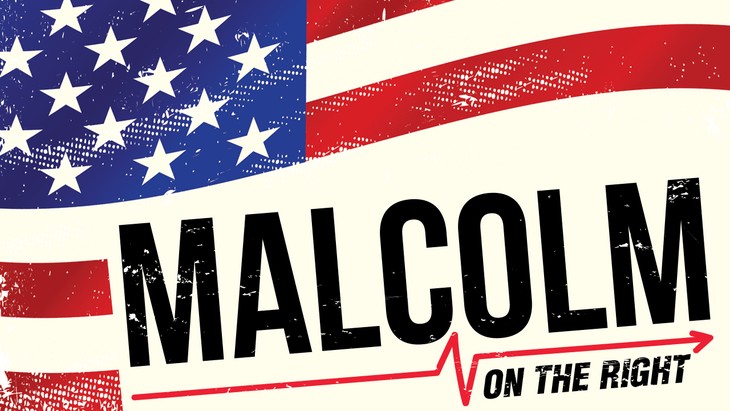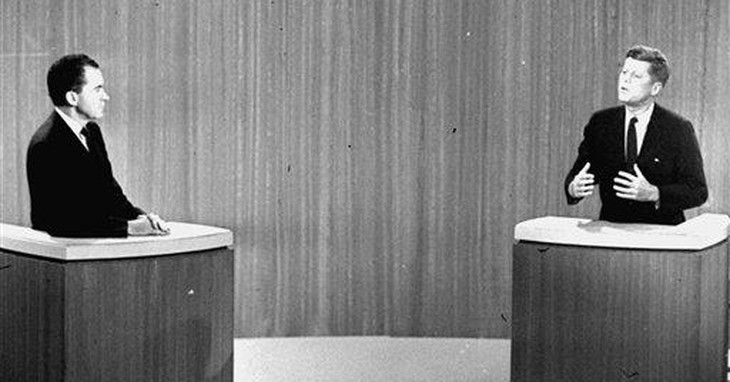The whole point of election campaigns is to divide voters into one camp or another. It’s the best way to draw them into one party tent or the other to harvest their votes. Us vs Them.
Somehow some nations like Canada or Britain manage to choose national leaders in a couple of campaign months. We, of course, must do everything bigger. Not necessarily better, just bigger.
We’ve now entered another full-throated national election season that will last for 18 long months of proclaiming, declaring, arguing, charging, proposing, denouncing, and dividing.
The nation already is riven with so many ongoing divisions it hardly seems beneficial to add 550 days of more dividing.
But here we are. And here we go.
The first important argument that’s already developed for this cycle is over Republican primary debates. FoxNews has the first party-sanctioned one scheduled for August in Milwaukee, the GOP’s 2024 national convention city a year later.
NBC and CNN are eager to get one each, no doubt because of their sincere interest in enlightening American audiences about the day’s most compelling issues. Not!
We’ve had televised debates in 14 of the last 16 presidential contests since the first one in 1960. Richard Nixon opted not to participate in 1968 and 1972 because he got sandbagged by his own poor choices in that first one. More on that below.
Primary debates have sometimes become crowded affairs, requiring two TV shows. At its 2016 peak, the GOP field had 17 candidates.
That permitted Donald Trump to win primary victories with only a plurality. He hopes for another expansive field of non-Trumps.
Conventional political wisdom has been that TV debates offer the most benefit through exposure to lesser-known candidates, of which there are numerous ones in the current GOP contest. So, Trump is not keen to lend his presence to such national political debuts.
Obviously, this does not hold true for Joe Biden whose almost daily mental and physical stumbles raise serious doubts about his ability to be commander in chief, let alone his capacity to confront aggressive competitors in a debate. Or his misbegotten, destructive policies.
To keep Americans from seeing that, the Democratic National Committee has nixed any Biden primary debates with Robert Kennedy Jr. and Marianne Williamson.
And it moved its first primary to South Carolina where Biden performed better in 2020 after two sad showings in Iowa (fourth place) and New Hampshire (fifth place).
Of the 11 Republican candidates, announced and anticipated soon, 10 clearly have lesser fame-wattage than the former president and media magnet.
In theory, you’d expect the less-known to be most eager to be seen and heard by millions on a national stage.
They are current governors Ron DeSantis of Florida, Doug Burgum of North Dakota, Chris Sununu of New Hampshire, former governors Nikki Haley, Mike Pence, Chris Christie, and Asa Hutchinson, Sen. Tim Scott, businessman Vivek Ramaswamy, and radio talk show host Larry Elder, who ran for California governor last year.
No media fan himself, DeSantis, however, has expressed debate reservations, at least concerning what outlets with antagonistic anchors might sponsor debates.
He’s said:
Corporate media…shouldn’t be involved in our process, because they’re hostile to us as Republicans.
DeSantis is solid in Florida, where he won reelection by almost 20 points last fall. But he needs to build a national base ASAP, at least in the early primary states of Iowa, New Hampshire, and South Carolina.
So, you’d expect him eventually to participate in debates.

The prospect of a 44-year-old Seal Team vet going toe-to-toe verbally with substance on his ongoing conservative record against the often over-the-top performances of Trump, who turns 77 in 10 days, would be campaign gold for DeSantis — and for TV, which prizes heat over light.
As usual, the real estate magnate’s negotiating tactic is threatening to sit out the Fox debate (and likely stage a competing event) to get his way, mainly over his refusal to pledge support for any eventual nominee.
Trump’s unilateral participation in a recent town hall brought CNN its largest audience in years. He’s said to be unhappy with Fox’s coverage of DeSantis so far.
No doubt a Trump absence would hurt a Fox News audience. But it would also damage Trump, which is why he’ll likely show up.
The former president has a reputation for punching critics back on even inconsequential issues, though that distracts from his more important points.
The image of Trump ducking the opening confrontation with his top challenger and others at basically the start of the fall campaign would sting badly. It would likely fuel donations to DeSantis and also leave unanswered any claims and charges he and others made.
I’ve written here before of my profound belief that these debates have become little more than reality political shows. Television’s format with a ticking clock, cheering audiences, and breaks for “these important messages” prizes appearance far above any substance.
Fact is, the superficial issue coverage bears little relevance to the actual duties of a well-staffed POTUS.
On paper and radio, coming off eight years as vice president, Nixon dominated the first-term senator John F. Kennedy with substance during that first presidential debate on CBS in 1960.
But old-school Nixon naively disdained makeup as show biz. A five o’clock shadow gave him a haggard appearance. He was sweating profusely under the studio lights.
People who watched the debate, as opposed to listening, unanimously agreed the poised, made-up Kennedy “won.”
But the victory of appearance over substance carried an awful price in blood. Like Kennedy, Nixon was a World War II Navy veteran. But Nixon had spent two terms as No. 2 to Dwight Eisenhower, the Supreme Allied Commander in Europe.
Having led troops up close in a bloody war, Eisenhower was a non-interventionist as president. Within his first seven months in 1953, he brought an end to the war in Korea.
He rejected French pleas for U.S. military help against Communist rebels in Indochina in 1954.
And in 1956, Eisenhower rejected U.S. involvement in the British-French takeover of the Suez Canal.
(A stark contrast with Democrat Obama’s eager leap into Europe’s 2011 war to oust Libya’s Moammar Gaddhafi. Which left a lawless failed state now an active training ground for terrorists infiltrating Africa where we’ve sent Special Forces to resist.)
But within 120 days of taking office in 1961, Democrat Kennedy began pumping U.S. troops into South Vietnam (the former French Indochina) as “advisers” to help fight Communist guerrillas.
Tragically, as in the later 20-year Afghan war, that became a mission creep commitment that would bitterly split the U.S. in the coming years and end up costing the lives of more than 58,300 American troops, killed and missing.

In the 1960 debate, however, that historically deadly difference in policy was absent as an issue. TV debates are glib, headline-seeking encounters that do not value nuance.
“Yes or no, do you support the president on immigration?”
“How would you deal with Russia attacking a NATO ally? You have 60 seconds.”
After the foreign policy debate in 2012, the year of the Benghazi murders, Obama was hailed for this damaging zinger on Republican Mitt Romney:
When you were asked, what’s the biggest geopolitical threat facing America, you said ‘Russia.’ Not Al-Qaeda; you said Russia.
And, the 1980s are now calling to ask for their foreign policy back, because, the Cold War’s been over for 20 years.
Within 16 months, however, Vladimir Putin of Russia seized the eastern provinces of Ukraine and all of Crimea. Putin laid low during the Trump years.
Then, two months into Biden’s term, he began organizing last year’s invasion to take over Ukraine entirely and potentially other countries. They, however, belong to NATO and would involve immediate U.S. military involvement.
Which shows Romney was precisely right as well as how little strategic prescience is valued on these political programs, just like in 1960.
That 1960 debate did make such encounters standard in American politics at many levels, now even down to mayoral races. That was the first on television. But not the first to shape history.
In 1858, an obscure former House member challenged incumbent Illinois Sen. Stephen Douglas. The challenger was Abraham Lincoln.
The two men met in a series of seven, historic three-hour debates that drew large crowds around Illinois. No microphones. No makeup. No commercial breaks.
A major issue at the time was slavery. Douglas argued the institution should be left to individual states. Lincoln, who less than five years later would issue the Emancipation Proclamation, argued against the spread of any slavery.
Lincoln lost that election. But the power, eloquence, and civility of the Lincoln-Douglas debates on that volatile issue brought widespread national attention to Lincoln and to his fledgling Republican Party.
Two years later, running against the same Douglas, among others, Lincoln was elected the 16th president of the United States and the first of 19 Republican presidents so far, the most of any party.
That’s an historical fact worth remembering as this debate over GOP debates unfolds in coming months to shape the selection of Joe Biden’s replacement.
All but one of this cycle’s Republican candidates will lose the contest for the party’s 2024 presidential nomination.
But in that process and through these debates, like Lincoln in 1858, we will witness some build a reputation, name recognition, and skills for a shot at other offices and jobs in the future.













